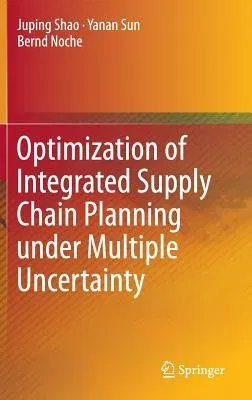The subject of this book is supply chain logistics planning optimization
under multiple uncertainties, the key issue in supply chain management.
Focusing on the strategic-alliance three-level supply chain, the model
of supply chain logistics planning was established in terms of the
market prices and the market requirements as random variables of
manufactured goods with random expected value programming theory, and
the hybrid intelligence algorithm solution model was designed. Aiming at
the decentralized control supply chain, in which the nodes were
unlimited expansion, the chance-constrained stochastic programming model
was created in order to obtain optimal decision-making at a certain
confidence level. In addition, the hybrid intelligence algorithm model
was designed to solve the problem of supply chain logistics planning
with the prices of the raw-materials supply market of the upstream
enterprises and the prices of market demand for products of the
downstream enterprises as random variables in the supply chain unit.
Aimed at the three-stage mixed control supply chain, a logistics
planning model was designed using fuzzy random programming theory with
customer demand as fuzzy random variables and a hybrid intelligence
algorithm solution was created. The research has significance both in
theory and practice. Its theoretical significance is that the research
can complement and perfect existing supply chain planning in terms of
quantification. Its practical significance is that the results will
guide companies in supply chain logistics planning in the uncertain
environment.

